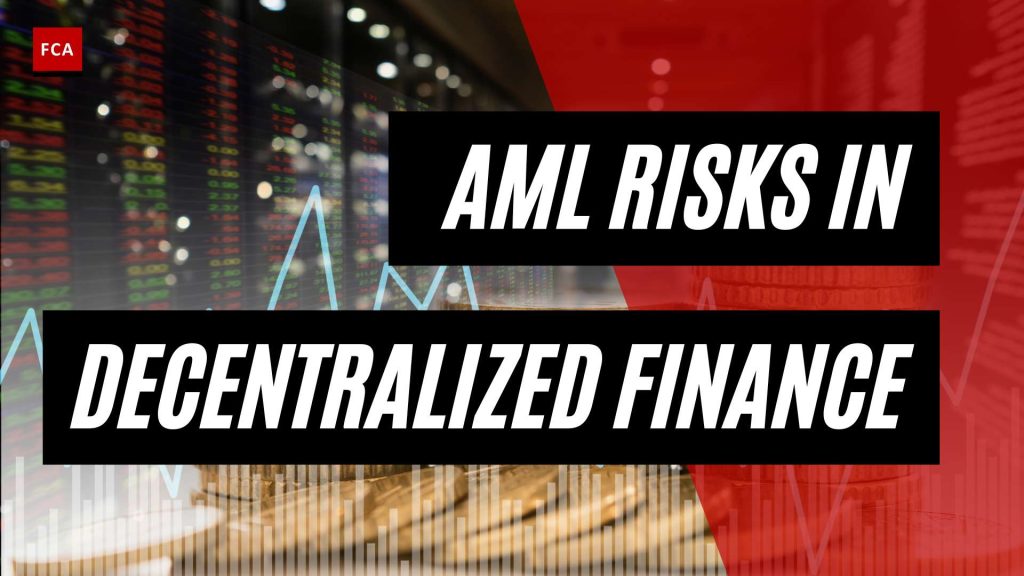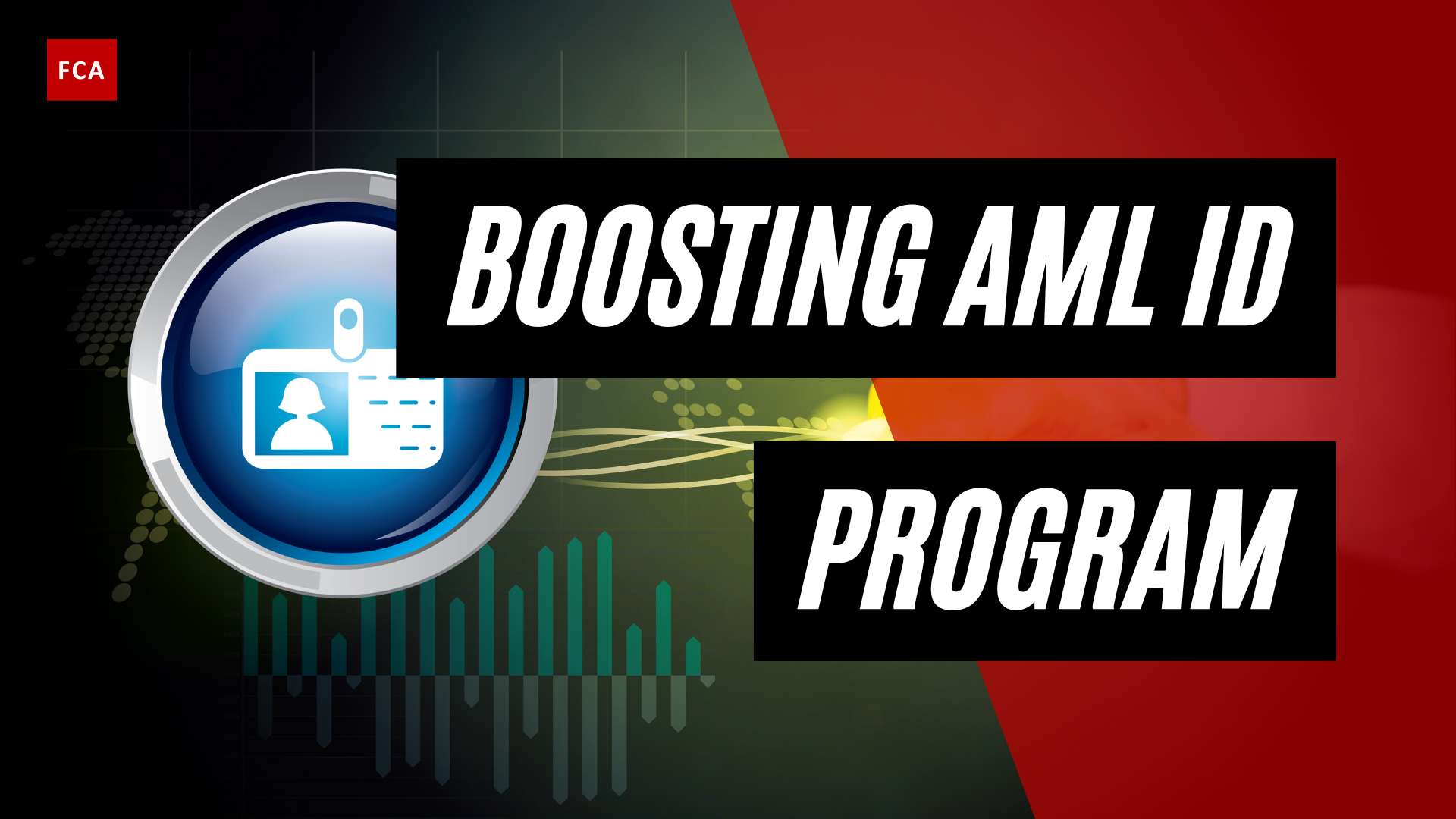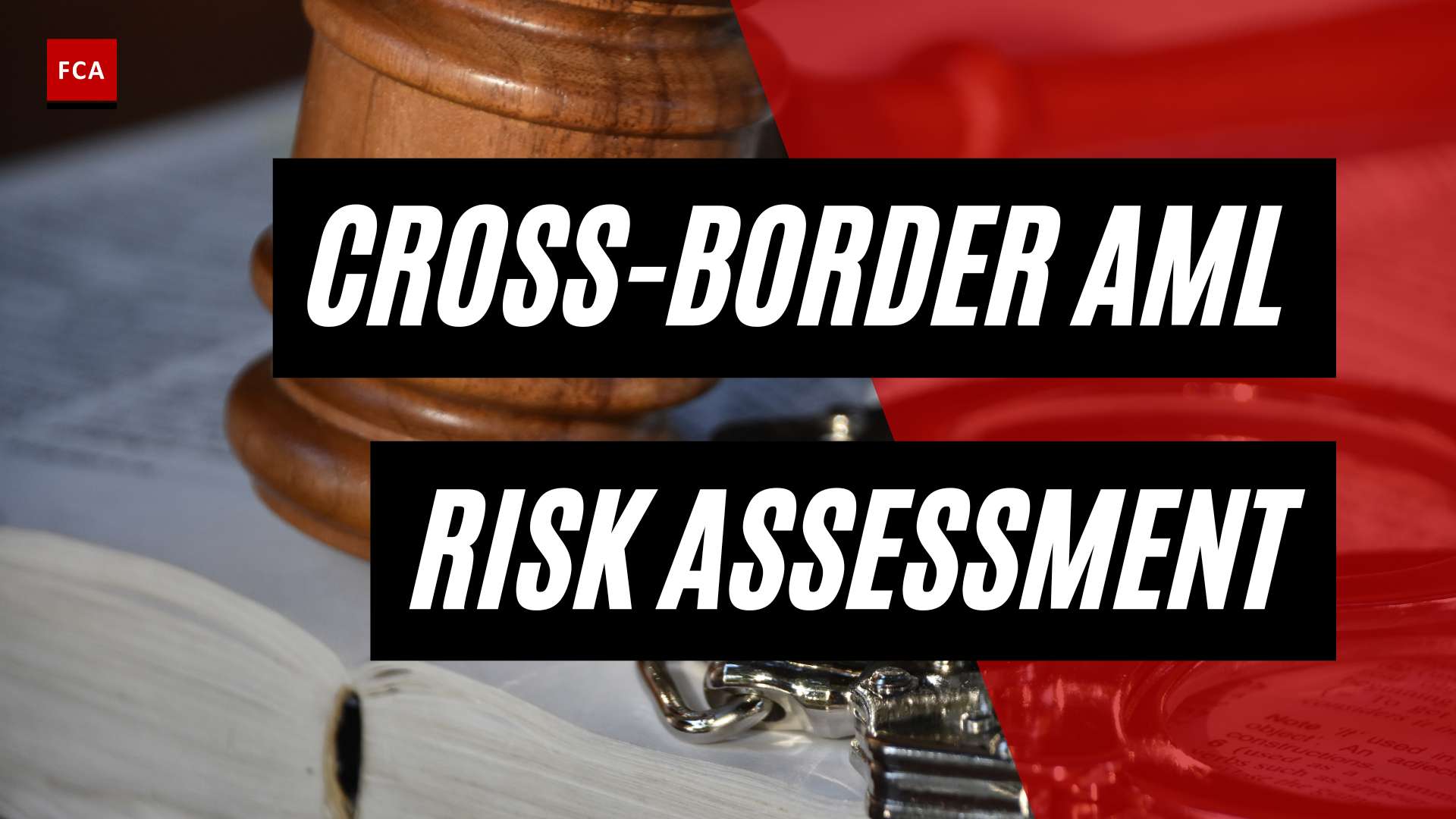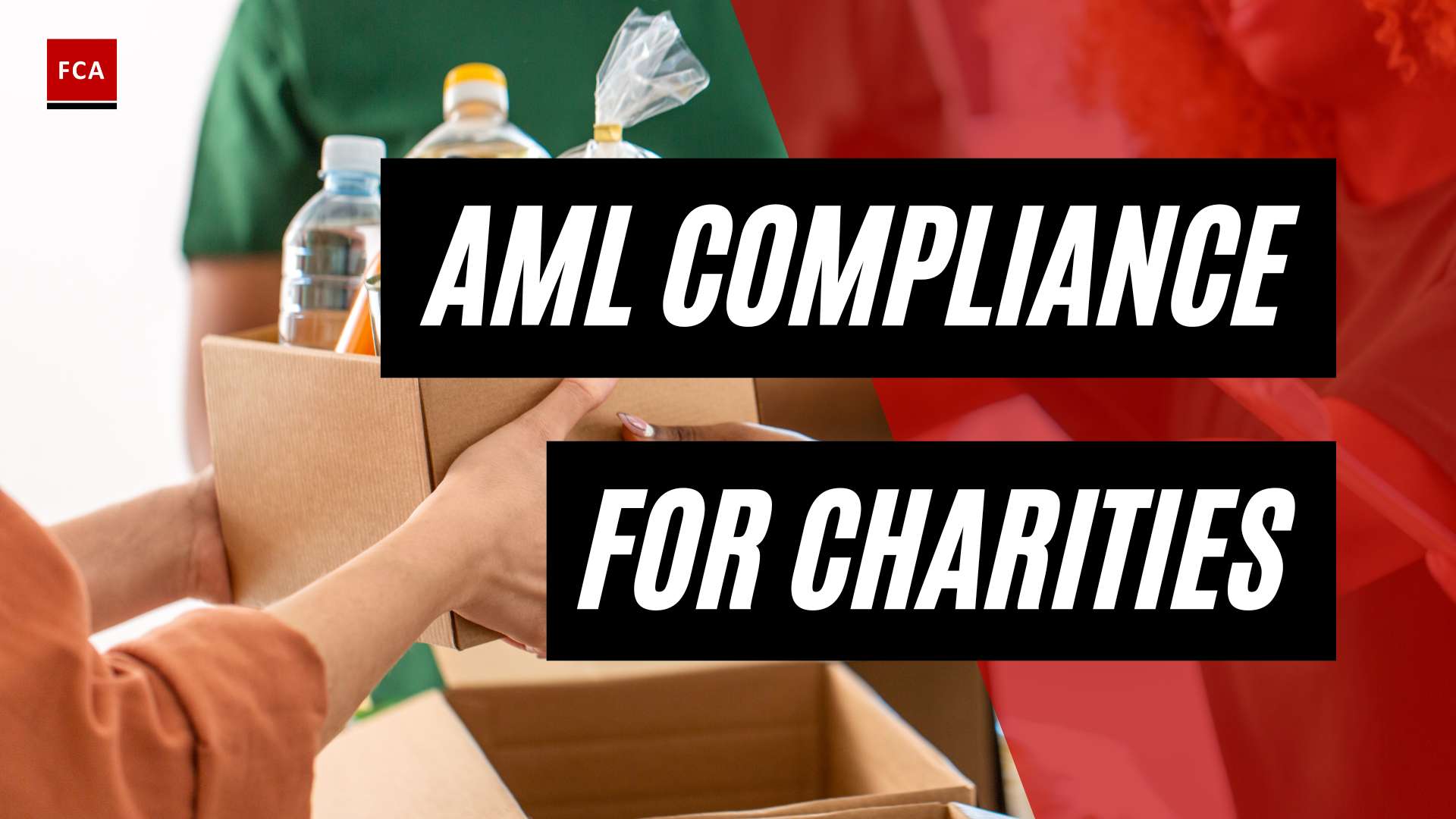Understanding AML Risks in Decentralized Finance (DeFi)
Decentralized Finance (DeFi) projects have gained significant popularity, but they also pose unique challenges when it comes to Anti-Money Laundering (AML) compliance. As these platforms offer increased anonymity and less regulation compared to traditional financial systems, they have become a target for money laundering and terrorist financing activities. Understanding the AML risks associated with DeFi is crucial for professionals working in compliance, risk management, anti-money laundering, and anti-financial crime.
Introduction to AML Risks in DeFi
DeFi platforms, with their decentralized nature, allow users to engage in financial activities without the need for intermediaries. While this offers various benefits, it also introduces AML risks. The boundaryless transactions and pseudonymous nature of decentralized systems can make it challenging to trace and monitor illicit financial activities. This increases the potential for money laundering, terrorist financing, and other illicit financial activities (Chainalysis).
Unique Challenges of AML Compliance in DeFi
AML compliance in the DeFi ecosystem presents unique challenges. The use of decentralized autonomous organizations (DAOs) in DeFi platforms can facilitate illicit activities without a traditional centralized entity. DAOs operate through smart contracts and enable users to participate in financial activities, potentially bypassing traditional AML controls.
Decentralized exchanges (DEXs), a key component of DeFi platforms, can also pose challenges for AML efforts. These exchanges allow for the swapping of digital assets with limited scrutiny, potentially aiding money laundering activities. The lack of centralized control and the rapid pace of innovation in DEXs make it challenging to implement effective AML measures (ACAMS).
Regulatory bodies, including the U.S. Department of the Treasury’s Financial Crimes Enforcement Network (FinCEN), are increasingly focusing on DeFi platforms to ensure compliance with AML regulations. This may lead to more stringent requirements and oversight in the decentralized financial space to mitigate illicit financial activities. DeFi platforms need to navigate these challenges and establish robust AML practices to protect against regulatory scrutiny and potential legal action.
To enhance AML compliance in DeFi, strategies such as transaction monitoring and user identity verification are vital. Implementing AML tools and frameworks can help detect and prevent illicit financial activities, safeguarding the integrity of the DeFi ecosystem (Chainalysis). Professionals in the field must stay informed about AML regulations, guidelines, and best practices specific to the decentralized finance space to effectively address the risks and ensure compliance (ACAMS).
AML Risks in Decentralized Autonomous Organizations (DAOs)
Decentralized Autonomous Organizations (DAOs) in the realm of decentralized finance (DeFi) introduce unique risks in Anti-Money Laundering/Countering the Financing of Terrorism (AML/CFT) compliance. DAOs, operating without a traditional centralized entity, can facilitate illicit activities, posing challenges for AML efforts.
How DAOs Facilitate Illicit Activities
The decentralized nature of DAOs can enable anonymity and obfuscation, making it easier for illicit actors to exploit the system. Criminals may leverage DAOs to launder money, finance terrorism, or engage in other illicit activities. The lack of centralized control and the absence of traditional intermediaries in DAOs provide opportunities for bad actors to manipulate transactions, obscure the origin of funds, and bypass AML controls.
AML Compliance Considerations for DAOs
AML compliance in the context of DAOs presents unique considerations. Traditional AML frameworks and regulations may not align perfectly with the decentralized nature of these organizations. Regulators and industry participants are actively exploring and developing guidelines for AML compliance in decentralized finance (aml regulations in DeFi).
To effectively address AML risks in DAOs, several key considerations should be taken into account:
-
Transaction Monitoring: Implementing robust transaction monitoring tools and techniques is crucial to detect and flag suspicious activities within DAOs. Advanced analytics, artificial intelligence, and machine learning can assist in identifying unusual transaction patterns and behaviors. Additionally, collaborating with blockchain analytics providers can enhance AML efforts by leveraging their expertise in tracking and analyzing decentralized transactions.
-
User Identity Verification: Establishing strong user identity verification procedures is essential to mitigate the risk of illicit activities within DAOs. Implementing Know Your Customer (KYC) procedures can help ensure that individuals participating in DAOs are properly identified and authenticated. KYC processes may involve verifying user identities through government-issued identification documents, conducting risk assessments, and screening against global watchlists.
-
AML Policies and Audits: Developing and implementing comprehensive AML policies specific to DAOs is critical for maintaining regulatory compliance. These policies should outline risk assessment methodologies, customer due diligence procedures, transaction monitoring protocols, and reporting mechanisms. Regular AML audits can help evaluate the effectiveness of these policies and identify areas for improvement.
-
International Cooperation and Regulatory Coordination: Given the global nature of DeFi and the decentralized landscape, international cooperation and coordination among regulators is essential to effectively combat AML risks. Harmonizing AML frameworks, sharing intelligence, and fostering collaborative efforts can enhance the ability to identify and mitigate cross-border illicit activities.
Addressing AML risks in DAOs requires a comprehensive approach that combines technology, regulatory guidance, and industry collaboration. By implementing effective AML compliance measures, the decentralized finance ecosystem can enhance transparency, protect against illicit activities, and build trust among regulators, participants, and users.
AML Risks in Decentralized Exchanges (DEXs)
As decentralized finance (DeFi) continues to gain traction, it is important to address the specific risks associated with decentralized exchanges (DEXs) in terms of anti-money laundering (AML) efforts. DEXs, which operate without a centralized authority, pose unique challenges for AML compliance. Let’s explore the role of DEXs in money laundering and strategies for addressing AML challenges in these platforms.
The Role of DEXs in Money Laundering
Tools like DEXs can potentially facilitate money laundering activities due to the ability to swap digital assets with limited scrutiny. Without a centralized intermediary overseeing user accounts, DEXs offer criminals the advantage of bypassing compliance controls. This makes them an attractive option for illicit finance, allowing individuals to obscure the origins of funds and engage in illicit transactions. Criminals can also combine DEXs with other tools, such as mixing services like Tornado Cash, further complicating AML efforts and making it challenging to trace the origins of illicit funds (Elliptic).
According to a report from Chainalysis, DEXs accounted for 41% of all illicit DeFi activity in 2021, highlighting their prominence as a service through which illicit entities interact with DeFi platforms (Chainalysis). The decentralized nature of DEXs, which allows for peer-to-peer transactions without the need for intermediaries, makes it challenging to implement robust AML controls.
Addressing AML Challenges in DEXs
To mitigate the AML risks associated with DEXs, it is crucial to explore strategies and measures that can be implemented within these platforms. Although regulations surrounding DEXs and AML remain uncertain in many jurisdictions, there are steps that can be taken to enhance AML compliance.
-
AML Procedures in DEX Transactions: DEX platforms should establish clear AML procedures for transactions, including customer due diligence measures. This may involve implementing know-your-customer (KYC) procedures to verify the identities of users, monitoring transactions for suspicious activity, and reporting any potentially illicit transactions. The integration of robust AML procedures can help deter money laundering activities within DEXs.
-
AML Policies for DEX Protocols: It is crucial for DEX protocols to implement comprehensive AML policies. These policies should outline the platform’s commitment to preventing money laundering and illicit activities. They should also provide guidelines on customer due diligence, transaction monitoring, and reporting of suspicious activity. By establishing clear AML policies, DEX platforms can demonstrate their commitment to compliance and deter illicit actors from utilizing their services.
-
AML Audits in Decentralized Finance: Regular audits of DEX platforms can help ensure compliance with AML regulations. Audits can be conducted by external AML specialists to assess the effectiveness of AML procedures, identify potential vulnerabilities, and recommend improvements. Regular audits provide an opportunity to enhance AML controls and maintain a strong compliance posture.
-
AML Frameworks for DeFi Platforms: Collaboration between DeFi platforms, regulatory authorities, and other stakeholders is crucial in developing comprehensive AML frameworks tailored to the decentralized nature of these platforms. These frameworks can provide guidance on AML best practices, compliance requirements, and reporting obligations. By establishing industry-wide standards and frameworks, DeFi platforms can work towards a more secure and compliant ecosystem.
Addressing the AML risks associated with DEXs requires a multi-faceted approach that combines regulatory oversight, technological innovation, and industry collaboration. By implementing robust AML procedures, establishing clear policies, conducting regular audits, and working towards industry-wide frameworks, DEX platforms can strive to mitigate the risks of money laundering and illicit activities within the decentralized finance space.
For more information on AML compliance in decentralized finance, refer to our article on aml compliance in decentralized finance.
Regulatory Focus on AML in DeFi
As Decentralized Finance (DeFi) continues to gain popularity, regulators are increasingly turning their attention to the Anti-Money Laundering (AML) risks associated with this emerging sector. DeFi projects, with their decentralized nature and limited regulation, have become a target for money laundering and terrorist financing activities (ACAMS). This section explores regulators’ expectations for AML compliance in DeFi and the potential implications of non-compliance.
Regulators’ Expectations for AML Compliance
Regulatory bodies, such as the U.S. Department of the Treasury’s Financial Crimes Enforcement Network (FinCEN) and other global counterparts, are closely monitoring DeFi platforms to ensure they comply with AML regulations. These regulators expect DeFi platforms to establish robust AML frameworks and implement effective AML measures to mitigate the risks of illicit financial activities. The decentralized and borderless nature of DeFi poses unique challenges, but regulators are emphasizing the importance of AML compliance to protect the integrity of the financial system.
To meet regulators’ expectations, DeFi platforms need to implement AML tools and procedures that align with traditional compliance methodologies. Transaction monitoring, for example, plays a crucial role in detecting and preventing suspicious activities in DeFi platforms. By monitoring transactions in real-time, platforms can identify patterns and anomalies that may indicate potential money laundering or other illicit activities. Additionally, implementing user identity verification procedures helps ensure that users are properly identified and can be held accountable for their actions.
Potential Implications for Non-Compliance
Non-compliance with AML regulations can have severe consequences for DeFi platforms. Regulators may subject non-compliant platforms to legal action and impose substantial fines or penalties. In addition to regulatory actions, non-compliance can damage a platform’s reputation and erode user trust. In an industry built on decentralization and trustlessness, maintaining a strong compliance posture is crucial to foster confidence among users and attract institutional investors.
As the regulatory focus on AML in DeFi intensifies, platforms must prioritize AML compliance to safeguard against regulatory scrutiny and mitigate the potential risks of illicit financial activities. By proactively implementing AML measures, platforms can demonstrate their commitment to maintaining the integrity of the DeFi ecosystem and help foster a safer and more secure decentralized financial landscape.
The next section will delve into strategies for enhancing AML compliance in DeFi, including transaction monitoring and user identity verification measures. Stay tuned to learn more about the practical steps DeFi platforms can take to mitigate AML risks.
Strategies for Enhancing AML Compliance in DeFi
To address the AML risks in decentralized finance (DeFi), it is crucial for platforms to implement strategies that enhance their AML compliance measures. Two key strategies that can significantly contribute to improving AML compliance in DeFi are transaction monitoring and user identity verification.
Transaction Monitoring in DeFi Platforms
Implementing robust transaction monitoring systems is essential for DeFi platforms to detect and prevent illicit financial activities. By analyzing transaction patterns and identifying suspicious behaviors, platforms can proactively identify and report potential money laundering or terrorist financing activities.
Transaction monitoring tools, such as AML tools for decentralized finance, can help platforms identify high-risk transactions, including those involving large amounts or multiple transfers. These tools utilize advanced algorithms and machine learning techniques to analyze transaction data and identify patterns that may indicate illicit activities.
By leveraging transaction monitoring systems, DeFi platforms can create alerts and triggers that flag suspicious transactions for further investigation. These systems can also help platforms comply with regulatory requirements, such as reporting suspicious activities to relevant authorities.
User Identity Verification in DeFi
Requiring user identity verification is another crucial strategy for enhancing AML compliance in DeFi. Verifying the identity of users helps platforms ensure that they are not facilitating transactions for individuals involved in illicit activities. It also helps establish a level of accountability and traceability within the DeFi ecosystem.
User identity verification can involve requesting users to provide identification documents, such as passports or driver’s licenses, and conducting AML procedures in DeFi transactions. Platforms can leverage technologies like Know Your Customer (KYC) procedures to validate user identities and comply with regulatory requirements.
By implementing user identity verification measures, DeFi platforms can reduce the risk of anonymous transactions and enhance their ability to track and trace funds. This is especially important for detecting and preventing money laundering, terrorist financing, and other illicit activities.
It is important for DeFi platforms to balance user privacy and security concerns when implementing user identity verification measures. Platforms should ensure that they adhere to relevant data protection regulations and employ secure methods for storing and processing user information.
By adopting transaction monitoring and user identity verification strategies, DeFi platforms can strengthen their AML compliance measures, mitigate the risks of illicit financial activities, and protect themselves from regulatory scrutiny. These strategies, along with AML policies for DeFi protocols and AML audits in decentralized finance, contribute to a more secure and compliant DeFi ecosystem.
Trends and Statistics in AML Risks in DeFi
As the decentralized finance (DeFi) space continues to expand, so do the risks and challenges associated with anti-money laundering (AML) compliance. Understanding the trends and statistics related to AML risks in DeFi is essential for professionals working in compliance, risk management, anti-money laundering, and anti-financial crime.
Rise in DeFi-Related Hacks and Frauds
The DeFi ecosystem has witnessed a significant increase in hacks, scams, and frauds in recent times. In 2021 alone, over $14 billion was lost to attacks, scams, and fraud in the DeFi space, surpassing the total losses for the years 2018, 2019, and 2020 combined (Chainalysis). These incidents highlight the vulnerabilities within the DeFi sector and the need for enhanced AML measures to mitigate such risks.
Cryptocurrency-related scams, including rug pulls, Ponzi schemes, and impersonation schemes, were the most common type of fraud in the DeFi sector in 2021. There was a staggering 248% increase in DeFi-related fraud compared to the previous year (Chainalysis). These fraudulent activities not only harm individual investors but also tarnish the reputation of the DeFi industry as a whole.
Illicit Activity Volume in DeFi Platforms
The decentralized nature of DeFi platforms presents unique challenges when it comes to AML compliance. Due to the inherent design of decentralized systems, it can be challenging to apply traditional compliance methodologies, making it easier for illicit actors to exploit the ecosystem (Chainalysis).
In 2021, approximately 17% of all transaction volume in the DeFi sector was associated with illicit activities. This statistic highlights the significant proportion of DeFi transactions that had illicit origins. It is crucial for DeFi platforms to implement robust AML measures to detect and prevent illicit activities, ensuring the integrity of the ecosystem.
Ethereum (ETH) emerged as the most popular cryptocurrency type associated with illicit DeFi activity in 2021. Approximately 40% of all funds received by illicit addresses were in ETH. This finding underscores the importance of monitoring and analyzing cryptocurrency flows within DeFi platforms to identify potential money laundering and illicit activities.
To address these rising AML risks in DeFi, industry participants, regulators, and compliance professionals must work together to develop effective AML frameworks, implement comprehensive transaction monitoring systems, and establish strong user identity verification protocols. By staying vigilant and adapting to emerging trends, the DeFi sector can work towards a safer and more compliant ecosystem.
Future Outlook for AML and DeFi
As the world of decentralized finance (DeFi) continues to evolve, so do the challenges and risks associated with anti-money laundering (AML) compliance. To effectively address these risks, innovative approaches and international cooperation are essential for the future of AML in DeFi.
Innovations in AML for Decentralized Finance
The decentralized and borderless nature of DeFi presents unique challenges for regulators in effectively addressing AML and combating the financing of terrorism (OECD). To tackle these challenges, continuous advancements in technology and regulatory measures are predicted to shape the future landscape of AML compliance in DeFi.
Efforts are underway to explore both centralized oversight and decentralized systems that enhance accountability and transparency in financial transactions within the Metaverse. These innovative solutions aim to address the compliance challenges posed by the decentralized and anonymous nature of the Metaverse while ensuring the integrity of financial systems.
International Cooperation and Regulatory Coordination
Regulators and policymakers face significant challenges in enforcing AML regulations in the DeFi space due to the borderless nature of blockchain transactions, decentralized governance models, and the global reach of DeFi platforms. To effectively address AML risks in decentralized finance, it is crucial to enhance international cooperation and regulatory coordination.
Collaboration between regulatory agencies, law enforcement, and private sector stakeholders is essential to navigate the complex and evolving nature of AML risks in the DeFi ecosystem. The use of privacy-enhancing technologies and blockchain-based transactions can obscure the origin and destination of funds, making it challenging to detect and prevent illicit activities. By working together, authorities, industry participants, and technology providers can develop innovative solutions and share information to address these challenges effectively.
Enhancing transparency, due diligence, customer identification, and transaction monitoring are critical components of AML and counter-terrorist financing (CTF) safeguards in the DeFi space. Regulatory recommendations emphasize the importance of strengthening these measures to mitigate the risks associated with illicit finance activities in decentralized finance platforms (U.S. Department of the Treasury). This includes implementing robust AML frameworks, conducting regular audits, and leveraging advanced AML tools and procedures tailored to the unique characteristics of DeFi platforms.
Looking ahead, the future of AML in DeFi will depend on the ability of regulators, policymakers, and industry participants to adapt to the evolving landscape. By embracing innovation, fostering international cooperation, and implementing effective regulatory measures, the goal of combating money laundering and illicit activities in decentralized finance can be achieved.








